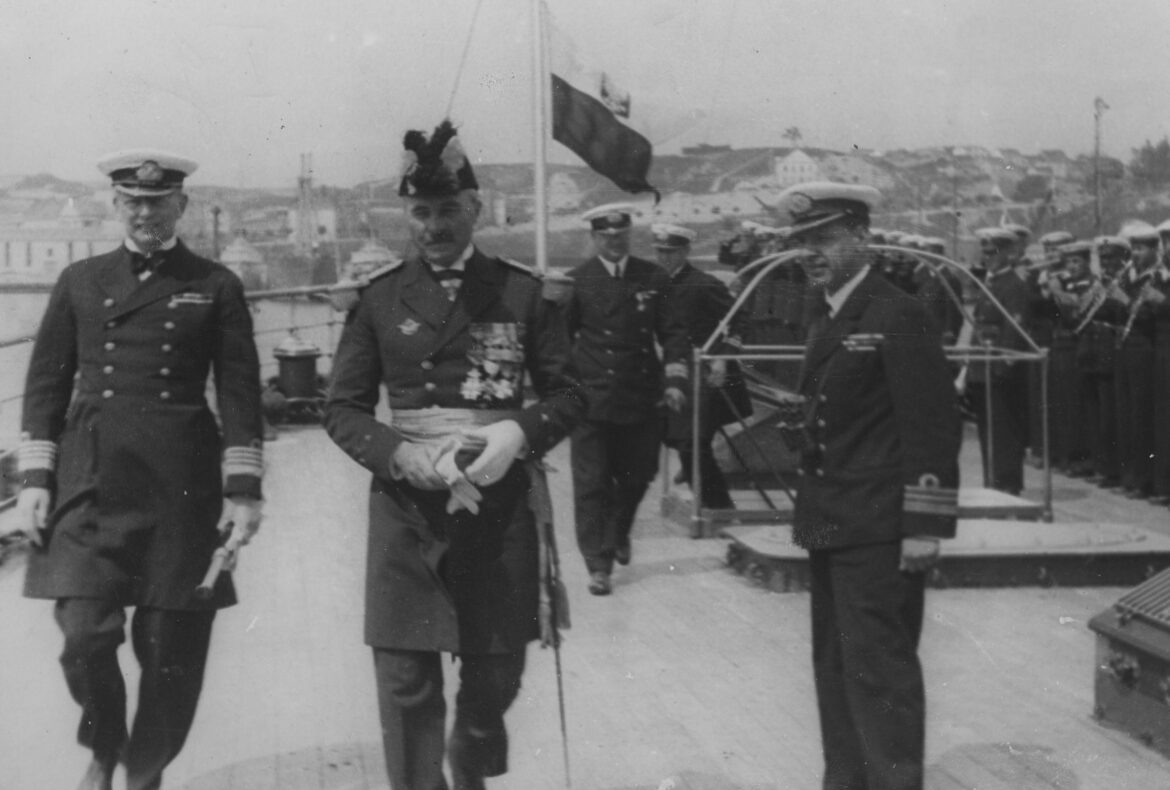Józef Unrug was a German who chose to be Polish. His life was full of contributions to the Polish navy. He defended the Polish coast against the onslaught of the German Nazis and when he was taken prisoner by the Nazis, he refused to speak German.
Born on 7 October 1884 in Brandenburg, Germany, Józef Unrug descended from a family with a long and rich history. His ancestor had been admitted to the Polish nobility in the 16th century and settled in Wielkopolska (one of Poland’s western regions). Józef’s father, Tadeusz, served as a general in the Prussian armed forces. Józef took after him a deep love for the Polish language and culture.
Sea wolf
Unrug began his education in 1891 in Dresden. After leaving grammar school, in 1904, he decided to devote himself to a military career and entered the Kiel Naval Academy. At the time, the German navy was one of the most advanced in the world.
After completing his training, Unrug obtained the rank of second lieutenant and served on various German ships. In 1915, he reached the rank of captain and began commanding submarines. His career gained momentum, and from mid-1917 until the spring of 1919 he was commander of a submarine flotilla and commandant of a school for submariners.
He chose Poland
After Poland regained its independence in 1918, Józef Unrug decided to devote his skills and experience to the reconstruction of the Polish navy. He reported for duty on 19 May 1919, facing a unique challenge: Poland at the time did not have a single ship, crew or even a seaport.
The first step towards rebuilding the fleet was to acquire a ship. Unrug, using his contacts and experience, purchased a ship in Gdansk, which was later transformed into ORP ‘Pomorzanin’. It was a steamer built in 1893 in Germany, which served as a platform for training future Polish sailors.
In 1920, Unrug was appointed the first head of the newly established Hydrographic Office in Gdańsk. He was responsible not only for organising the fleet, but also for its development and modernisation. In 1925, after five years of intensive work, he was appointed commander of the Fleet of the Second Republic of Poland.
In 1933, Józef Unrug was promoted to Rear Admiral and continued his efforts to expand and modernise the fleet. He obtained funds from various sources, including public contributions, which enabled the purchase of modern ships and equipment. His initiative led to the creation of the Maritime Defence Fund, which raised significant funds for the construction of the ORP ‘Orzeł’ submarine.
Against the German invaders
When Germany attacked Poland in 1939 and unleashed the Second World War, Unrug was at the forefront of the defence of Hel and the Polish coast. Although three of the four Polish destroyers were diverted to British ports, Unrug commanded the rest of the force with extraordinary determination and courage, defending one of the last points of resistance in Poland.
Finally, on 2 October 1939, faced with the impossibility of further defence and with concern for the fate of the civilian population, Unrug made one of the most difficult decisions of his life – he declared capitulation. Together with his soldiers, he was taken into German captivity.
In German captivity
His attitude in the prisoner-of-war camps was as admirable as his earlier achievements on the battlefield. Unrug, who had previously served in the German navy, had the opportunity to enjoy privileges in captivity. Nevertheless, he resolutely rejected them.
He responded to all attempts to communicate in German only in Polish, declaring that he ‘was a Polish officer and had put the German language out of his mind on 1 September 1939’. Even when Unrug’s German family tried to convince him to return to Germany and serve in the Kriegsmarine, he remained adamant. His steadfastness and passive resistance, such as his refusal to shake hands with German guards, earned him harsh treatment and harassment.
Unrug not only looked after his own dignity, but also tried to maintain morale among the other Polish POWs. He encouraged them to be physically and intellectually active, which was of no small importance to their spirit and condition. He himself read 400 books in French and English during his captivity.
Finally, on 29 April 1945, he experienced liberation by American troops at the Murnau camp in Bavaria.
Unrug’s fate in exile
After the end of the Second World War, Unrug made his home in the United Kingdom. He was promoted to the rank of vice admiral in 1946 and a year later was awarded the Gold Cross of the Order of War Virtuti Militari. Although the British government offered him a pension, in an act of solidarity with other Polish soldiers who did not receive such benefits, he refused to accept it.
Unable to return to Poland, which was in the Soviet sphere of influence, Unrug decided to live in exile. In 1948, he and his wife Zofia emigrated to Morocco. Later, from 1958, the couple settled in France near Orléans. During this period, he even worked as a truck driver.
Return to the Fatherland
Unrug died in 1973 in France. He expressed the wish that his ashes would only be transferred to Poland after the country was free and his sub-commanders were commemorated with dignity. His dream did not come true until 2018, when, thanks to the efforts of the Institute of National Remembrance and other organisations, the ashes of Unrug and his wife were transferred to Poland and buried in the Naval Cemetery in Gdynia.
It is also worth mentioning that in 2018, President Andrzej Duda, on the proposal of the Minister of National Defence, posthumously appointed Vice Admiral Józef Unrug to the rank of Admiral of the Fleet.





